Jurassic Pork - The Ultimate Pork Glossary You Should Know!
As a Muslim, we are prohibited from consuming pork and any derivative product of it. However, there are so many names associated with pork and there is even more products derived from it. It can be a little bit tricky to identify dish or product containing pork if we are not familiar with the names. Here are the list of pork glossaries you should know and try to remember. Next time you want to buy a product or order foods, try to recall these!
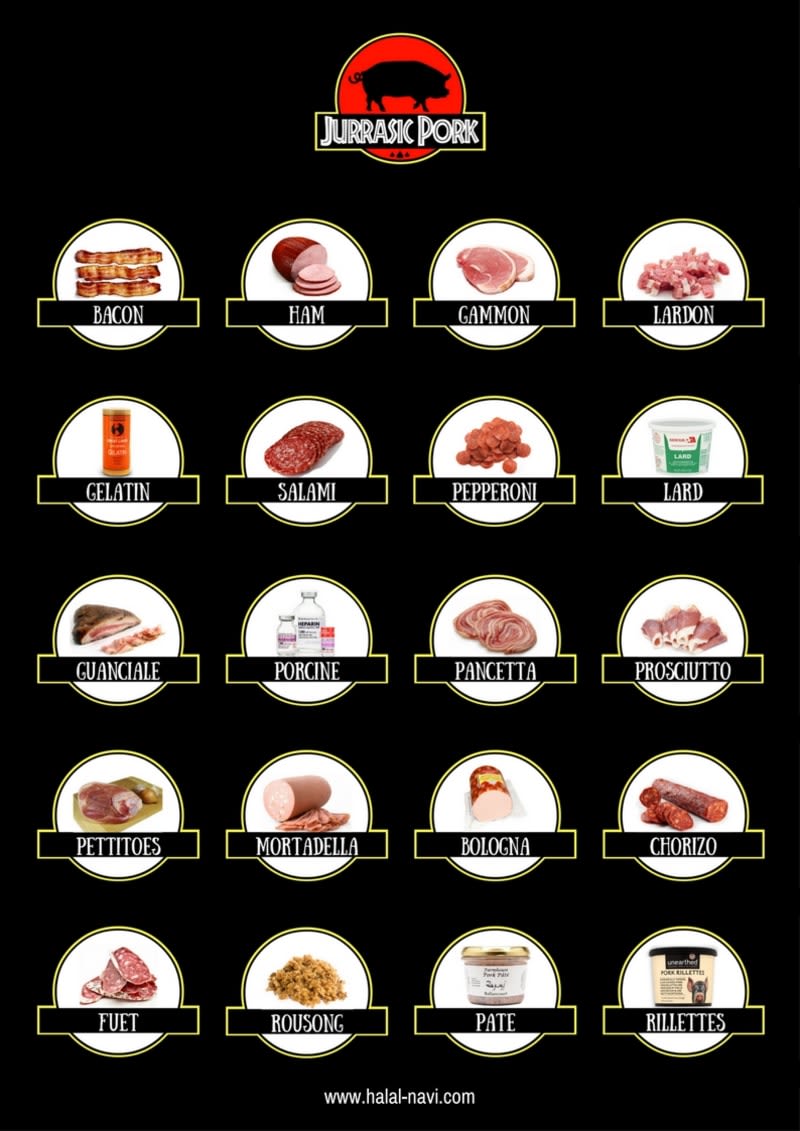
1. Bacon (ベーコン)
You are most likely very familiar with this. Bacon is cured and cold-smoked pork which means Bacon is not actually heated or cooked during the smoking process and thus remains raw. Bacon can be found easily in many types of foods and also sold in groceries store.
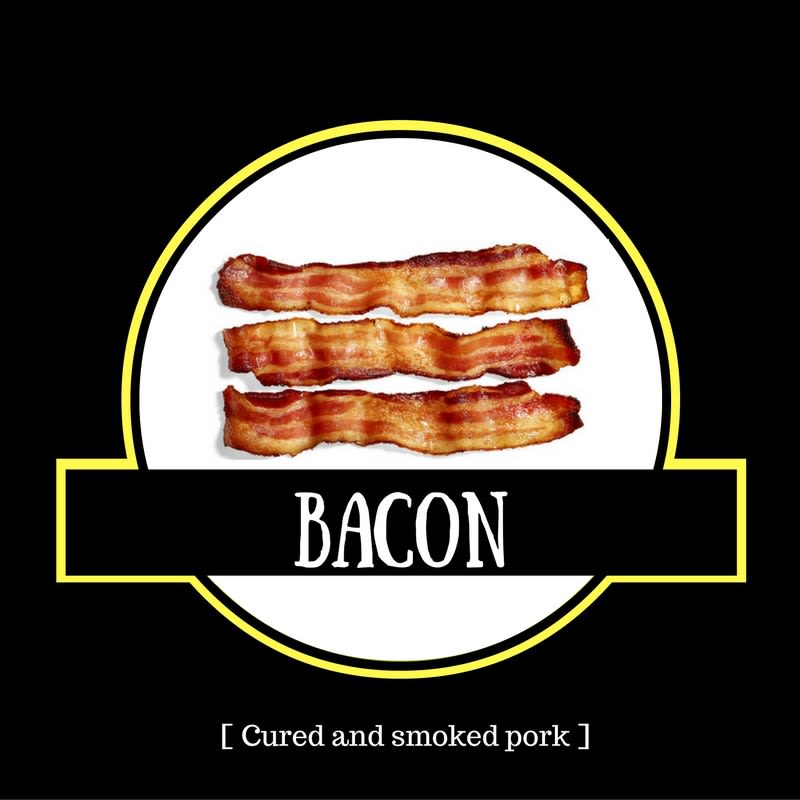
Photo credit to Good Housekeeping
2. Ham(ハム)
Ham is another most common pork product you will find in the market. It is cut from the thigh of pork and preserved through salting, smoking or wet curing. Ham is typically consumed in sliced form as a filling of sandwich or topping of pizza.
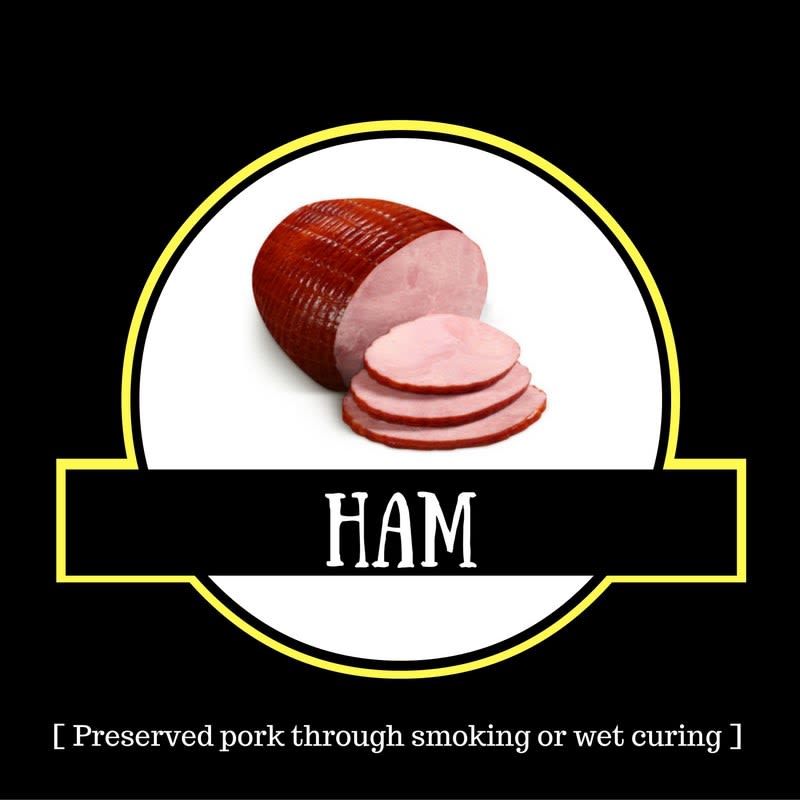
Photo credit to The Columbus Dispatch
3. Gammon(ギャモン)
Gammon is the cured hind leg of pork, usually sold on the bone or without the bone. It can be smoked or not depends on the producer. You might see this in the groceries stores sold as steak or rasher. Sometimes people purchase it to further cured it into ham.
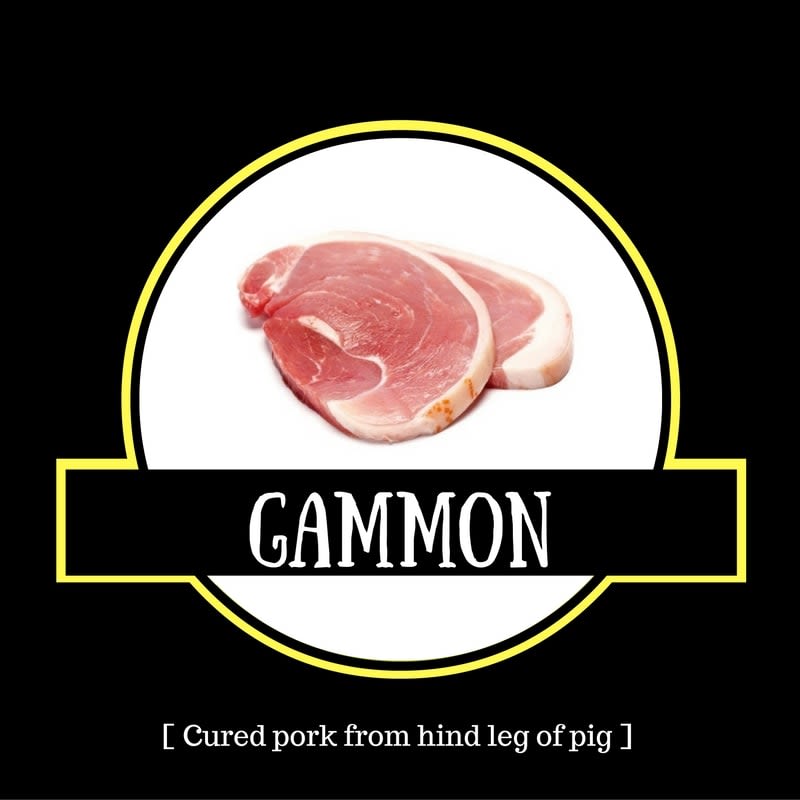
Photo credit to Bob the Butcher
4. Lardon(ラードン)
Lardon is pork fat cut in a cube and small trips. Lardon may be prepared from pork belly, fatback or cured products like bacon. It is usually used to give savoury flavours in foods during the early stage of cooking and the crisp cubes are sometimes used as a garnish in the dish.
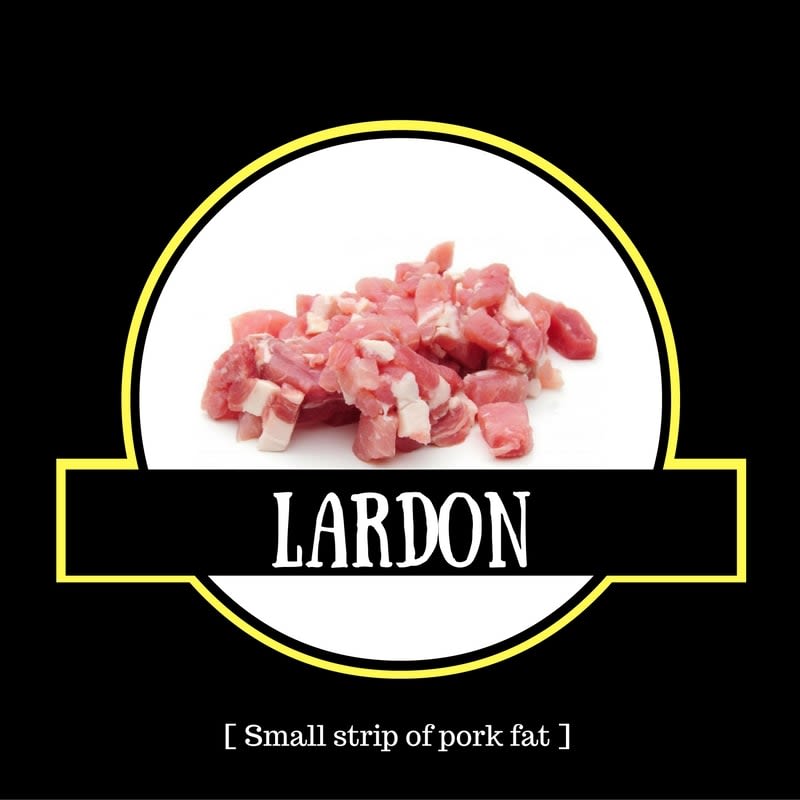
Photo credit to wiseGEEK
5. Gelatin (ゼラチン)
Gelatin is obtained from collagen of various animal raw materials including pork. It is used as a gelling substance in foods and drugs. You can find gelatin widely in desserts, marshmallow, yoghurt, margarine, candy, jellies and much more. So do check the ingredients of product you want to buy if it doesn't have halal certification.
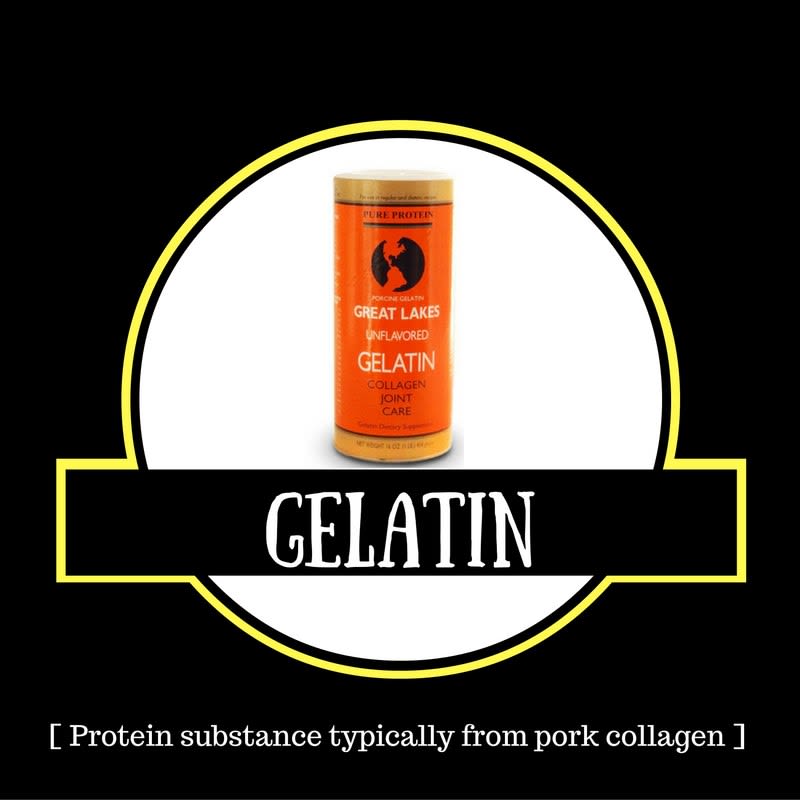
Photo credit to iherb
6. Salami(サラミ)
Salami is cured sausage made from fermented meat. Unless stated halal or kosher, Salami is typically made from pork. The fermentation is last for a day and sometimes use an edible mould in the casing to enhance the fermentation process.
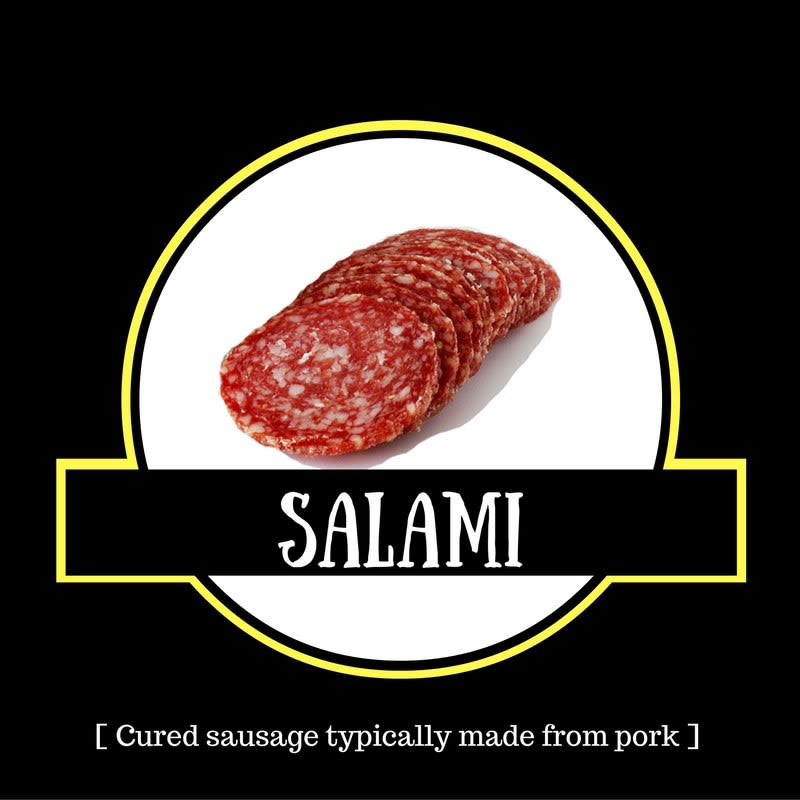
Photo credit to Healthyrise
7. Pepperoni (ペパロニ)
Pepperoni is an American style of Salami. Similar with Salami, it is typically made from pork and beef mixed together unless stated otherwise. You can easily find pepperoni as the topping of pizza.
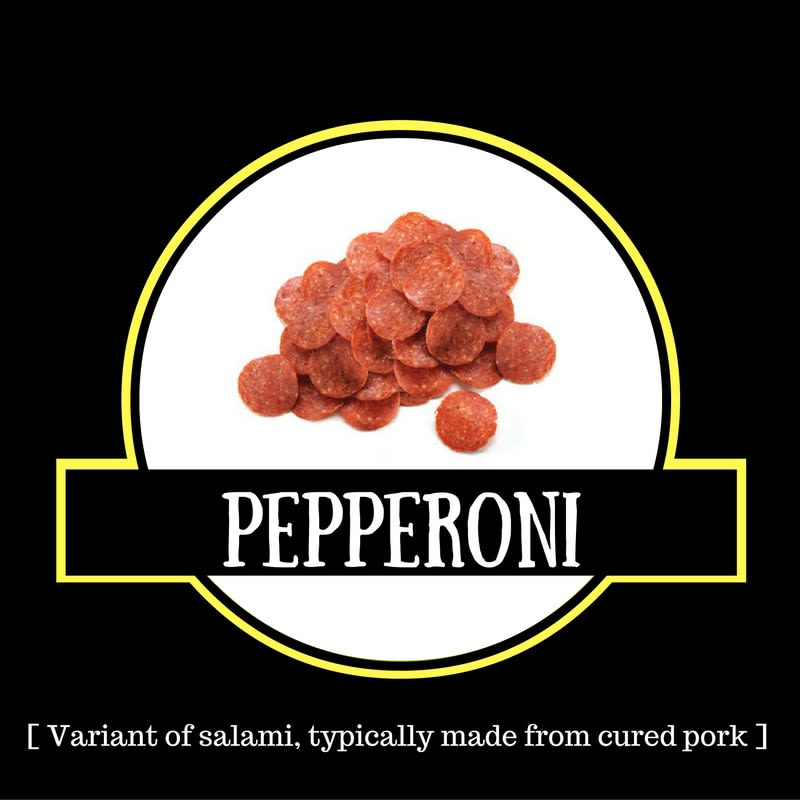
Photo credit to Golden Age Cheese
8. Lard(ラード)
Lard refers to rendered or unrendered form of fat obtained from any part of a pig. It is commonly used in dishes as cooking fat or shortening. People also uses it to spread on bread like butter.
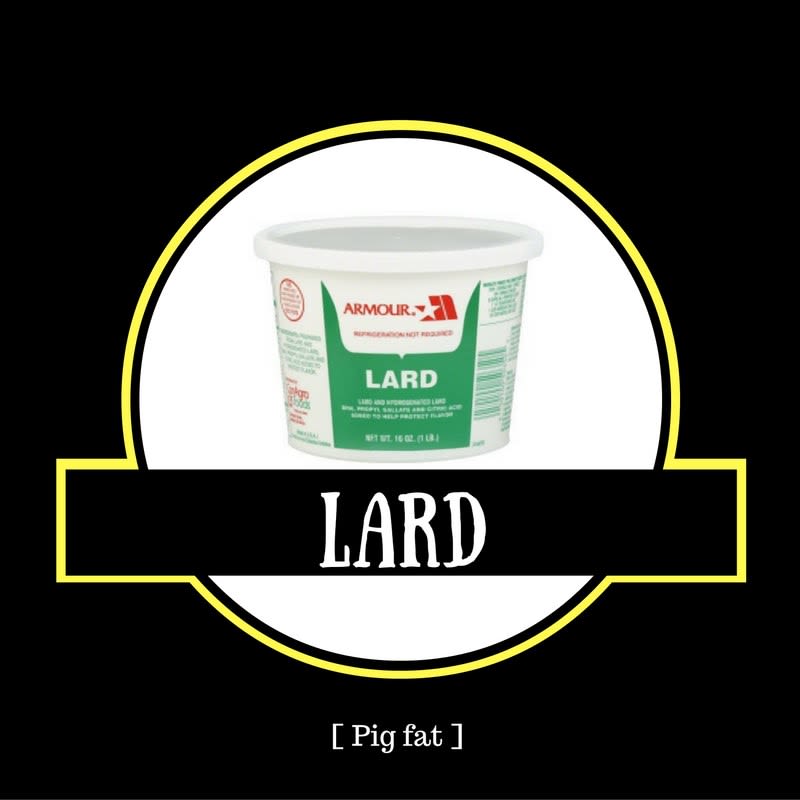
Photo credit to Dave's Cupboard
9. Guanciale(グアンチャーレ)
Guanciale is an Italian type of Salami prepared from pork jowl or cheeks. The meat is rubbed with salt, sugar and other seasonings then cured for several weeks. It is usually cut and eaten directly but sometimes also used as a paste.
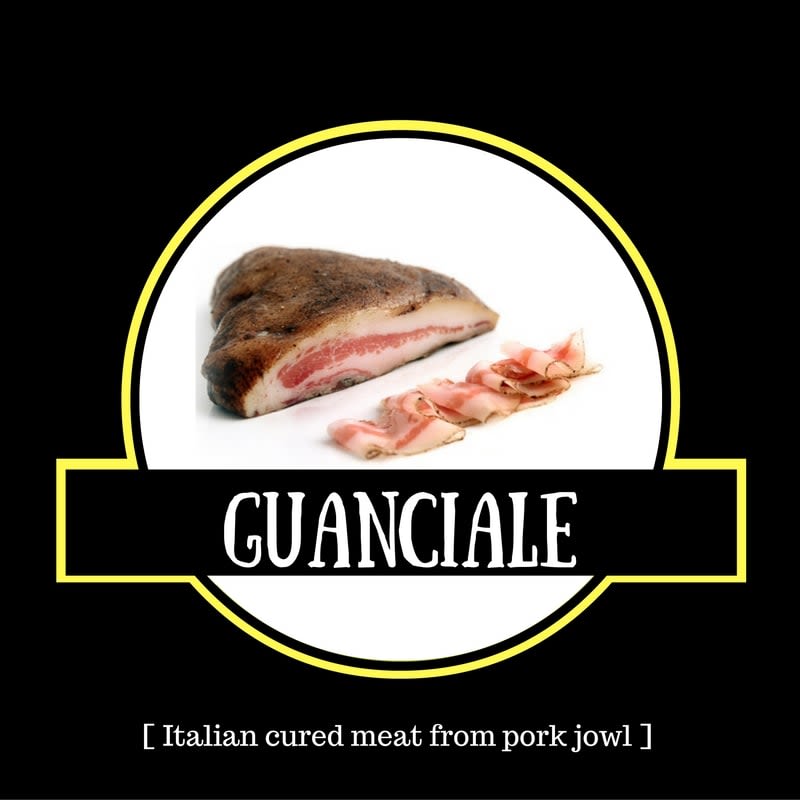
Photo credit to CIBO
10. Porcine(豚由来)
Procine is a medical term referring to any substance obtained from pork. You can find this in wide range or medicine and medical products.
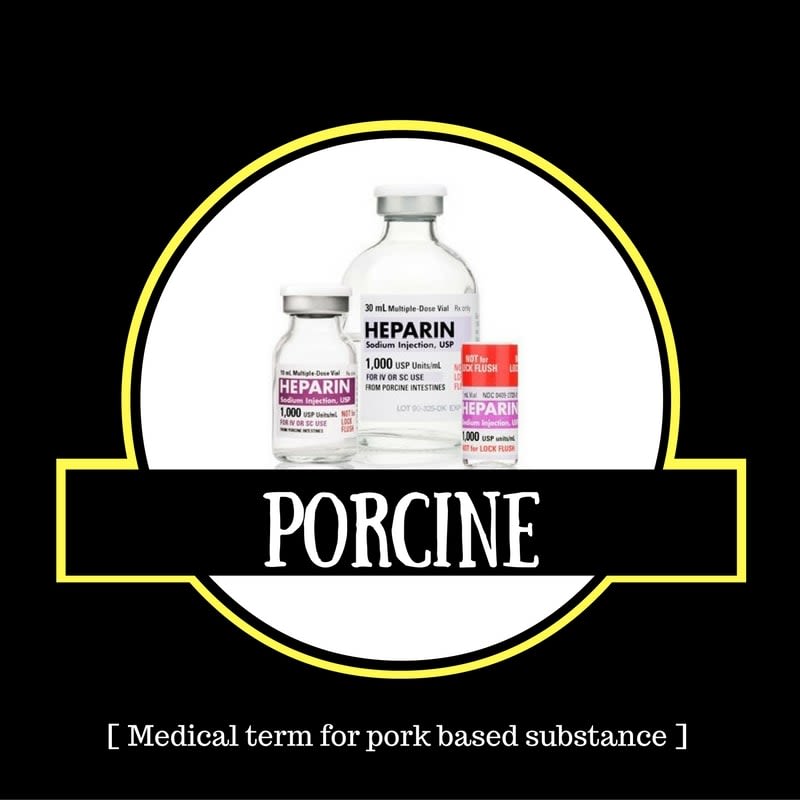
Photo credit to Cornell University
11. Pancetta(パンチェッタ)
Pancetta is Italian bacon made from pork belly that has ben seasoned and cured. It is often served raw or cooked in cubes cut.
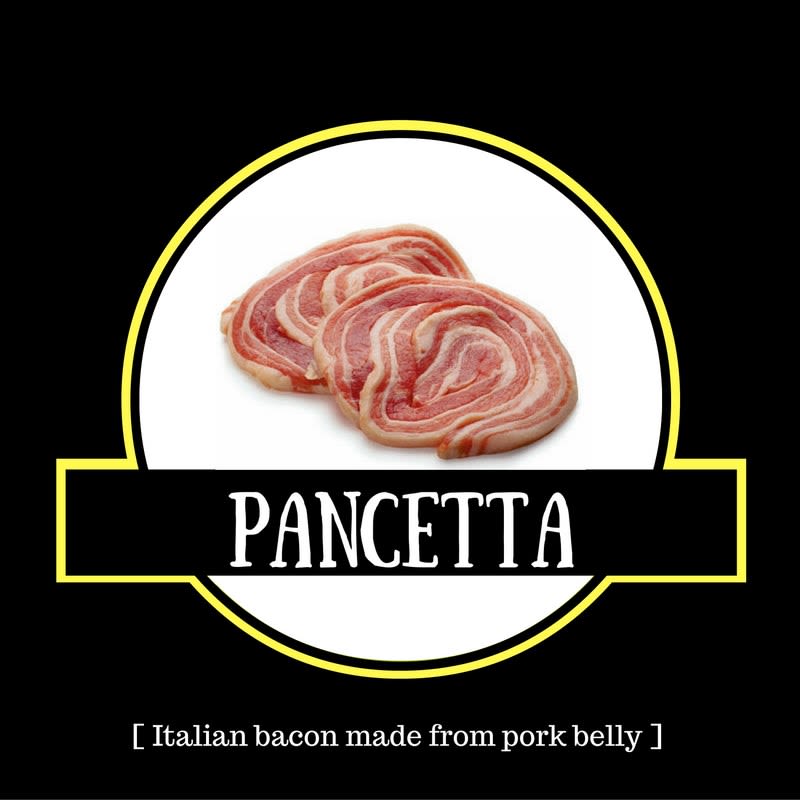
Photo credit to Fine Cooking
12. Proscuitto(プロシュット)
Proscuitto is dry cured ham that usually served in thin sliced and uncooked. It is often used as wrapped in many types of dishes such as Grissini, put in pasta, pizza topping and many more.
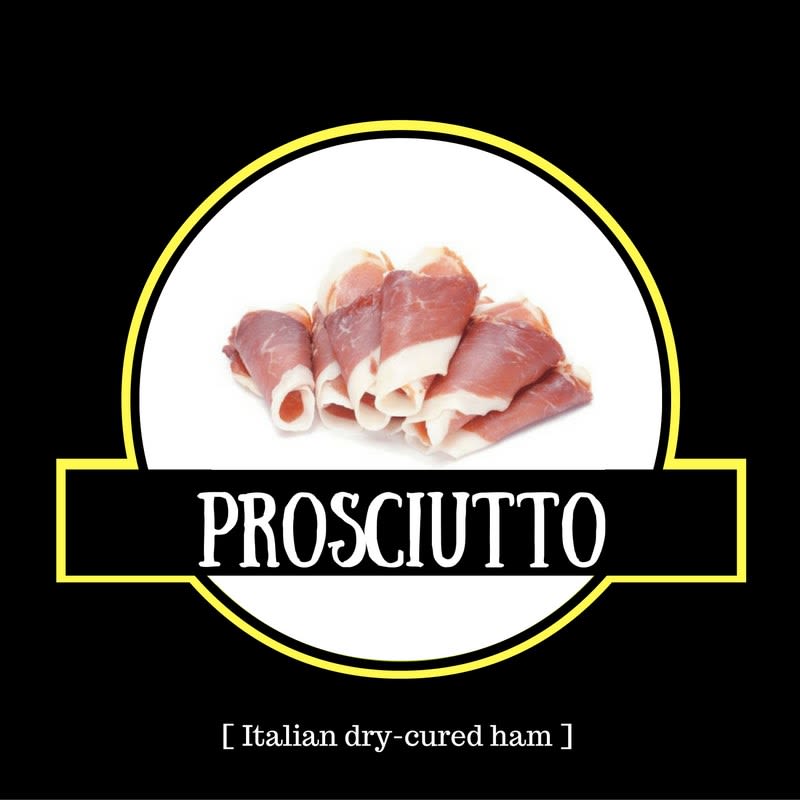
Photo credit to italianicious
13. Pettitoes(豚足)
Pettitoes are the feet of a pig. The feet hairs are cleaned before it is sold. They are often used to make stocks and gravy soup. Sometimes it is also served as meat cut and eaten with rice or made into soup.
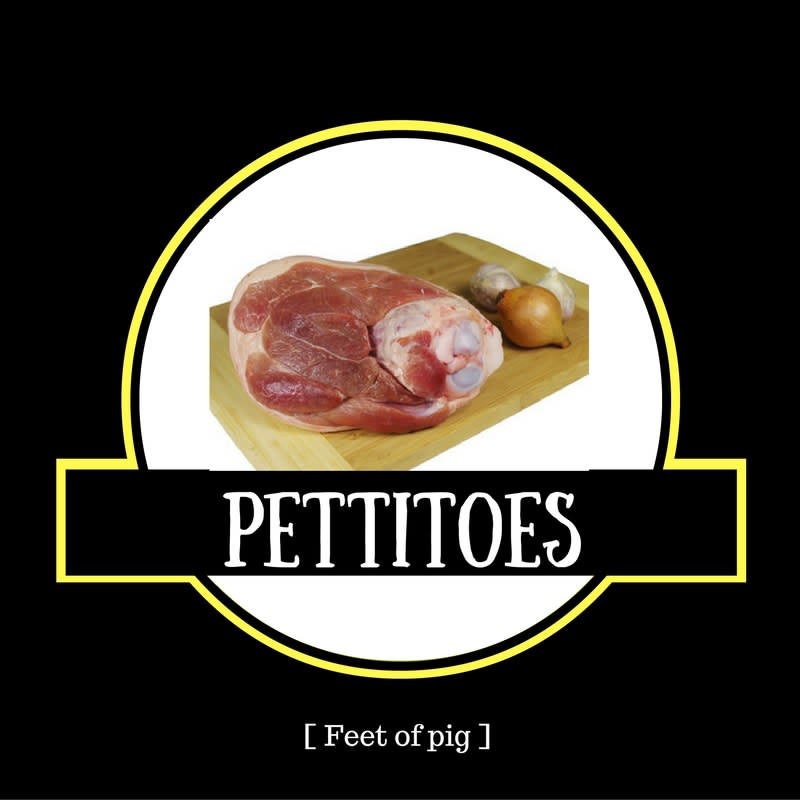
Photo credit to Dreamstime
14. Mortadella(モルタデッラ)
Mortadella is a huge sausage made from ground heat-cured pork. It contains a big amount of pork fat and sometimes mixed with pistachios nut and olives. People often uses it as filling in sandwiches or consumed in thin slices.
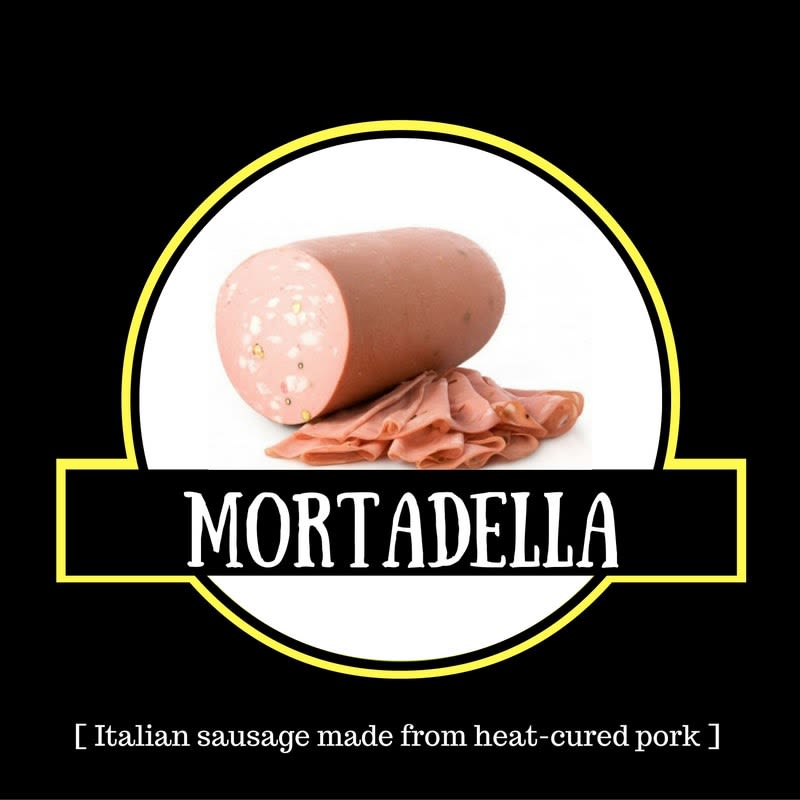
Photo credit to Buonissimo
15. Bologna(ボローニャソーセージ)
It is another type sausage derived from mortadella. Unless it is stated halal or kosher, it is typically made from pork. It is made from mixture of ground pork and lards.
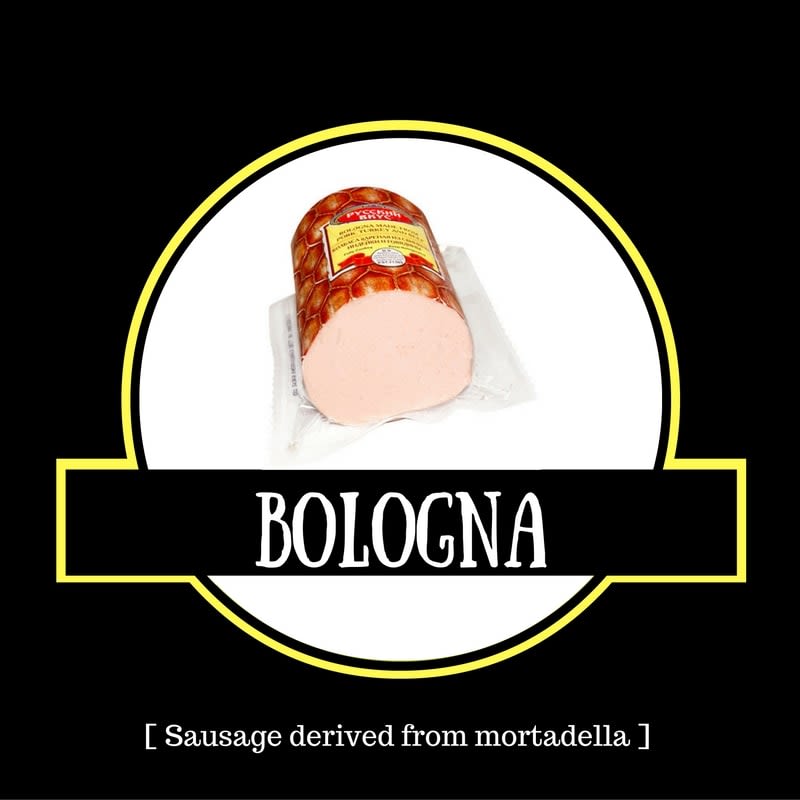
Photo credit to Belmont
16. Chorizo(チョリソ)
Chorizo is a fermented, cured and dried smoked sausage. It contains dried smoked red peppers or chilli peppers that give deep red colour to it. It is often consumed in sandwich filling or as replacement of minced meat.
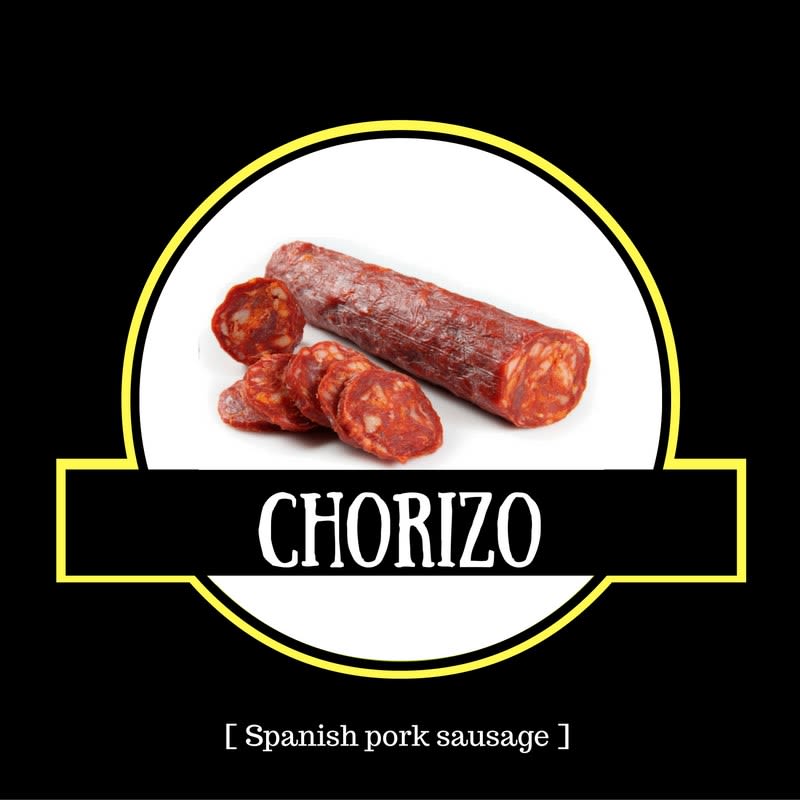
Photo credit to Marulan
17. Fuet(フエット)
Fuet is a type of sausage made from minced fat and lean pork seasoned with salt and other spices. The diameter is smaller than normal sausage and the casing has a whitish colour of the mould that formed during the production process. This white outer colour distinguishes it from other sausages.
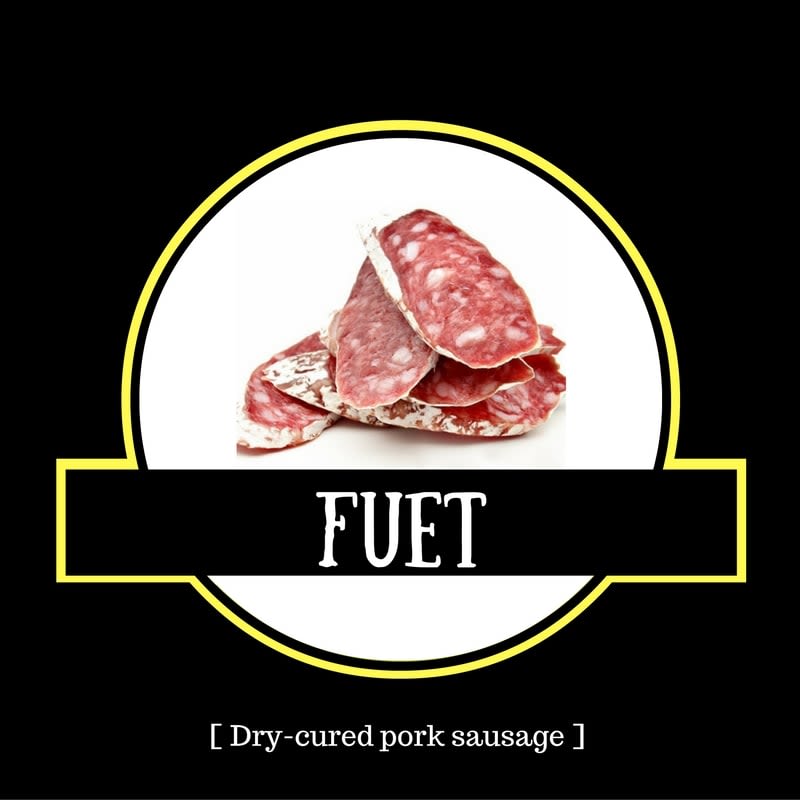
Photo credit to Vegajardin
18. Rousong(肉松)
Rousong is a dried pork product that forms meat wool originated from China. It is used as condiment and topping of other dishes. The halal version of it made from beef is very popular in Indonesia and called abon or in Malaysia called as serunding. So don't be confused about it.
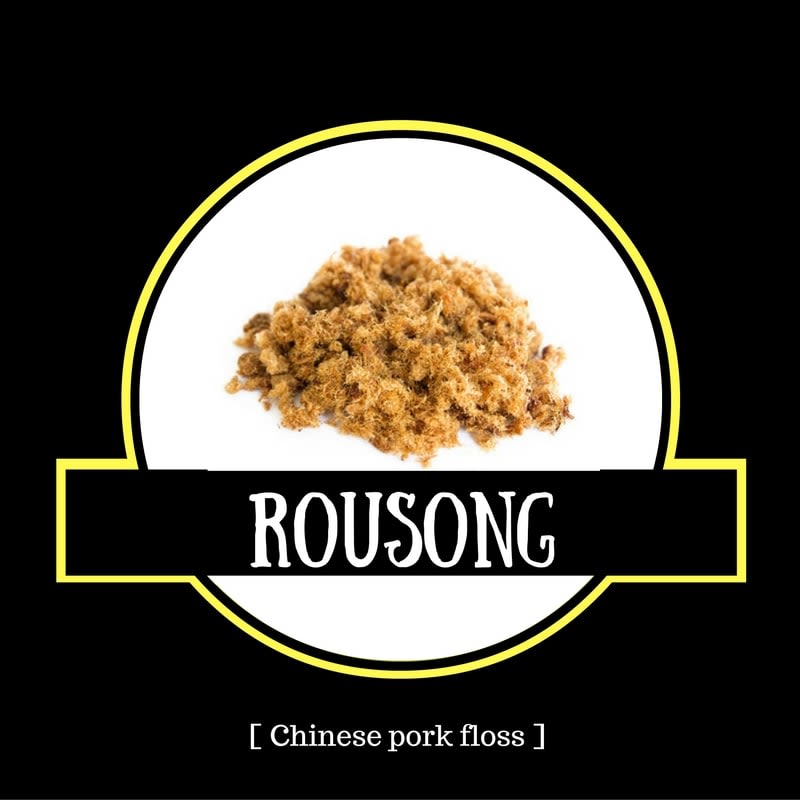
Photo credit to Serious Eat
19. Pate(パテ)
Pate is a mixture of meat, fat, veggies and other herbs that formed into a solid paste. It is made from various type of meat; beef, chicken, pork, fish, etc. So you've got to be really careful if you find this dish. Pate is normally used as a spreadable paste in a loaf or baked in a crust.
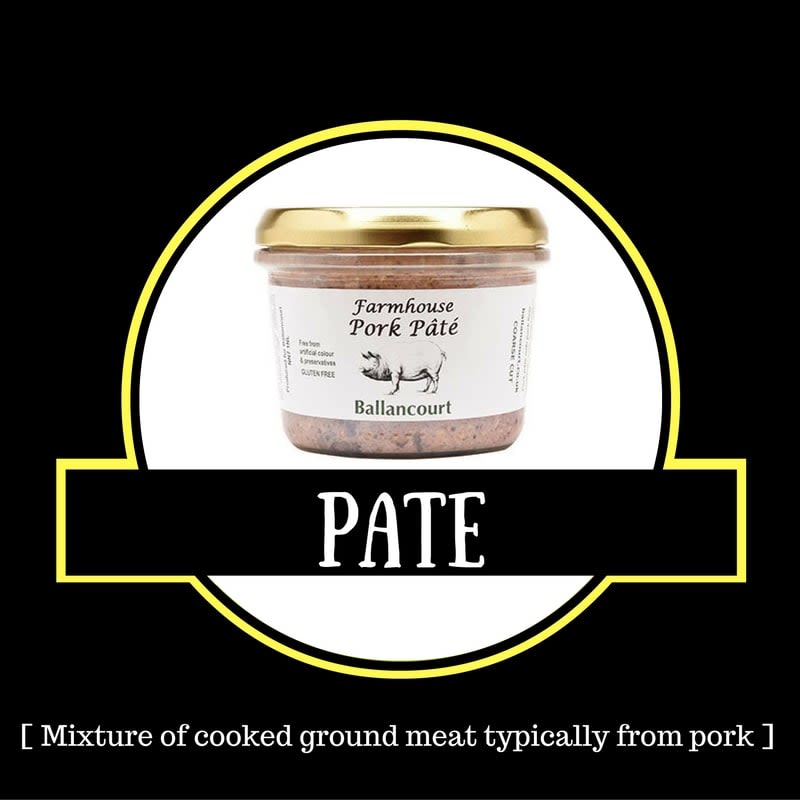
Photo credit to Ballancourt
20. Rillettes(リエット)
Rilletes is also a paste similar to Pate, but the texture is much smoother. It is commonly made from pork that cooked slowly, shredded and cooled with fat. People normally serve this as a spreadable paste in bread or toast just like Pate.
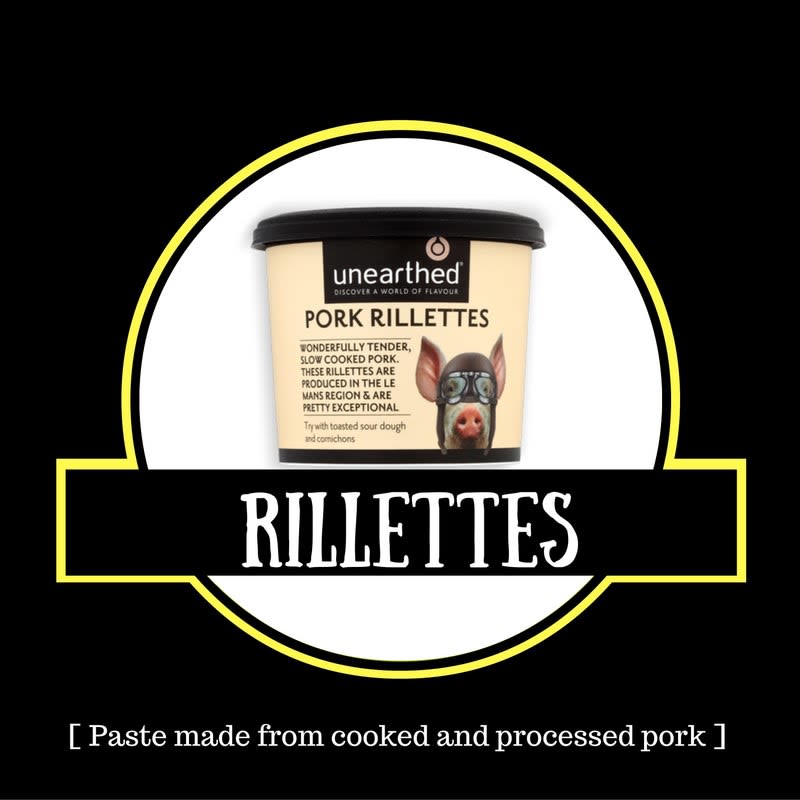
Photo credit to Waitrose
We hope by knowing all these pork terms and derivative products, you can be more careful in consuming non-halal certified product next time. However, if you are still not confident of judging the dish yourself, be sure to download Halal Navi on your phone. You can check Halal tips from other users and get to know the halal status of restaurant you want to visit 🙂




